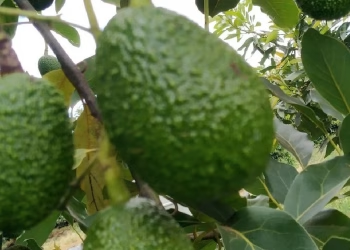The African continent has significant potential to foster a resilient and equitable future, but this can only be realized through the restoration of degraded landscapes.
During the Global Landscapes Forum 2024 Hybrid Conference in Nairobi, experts emphasized that revitalizing these areas is crucial for protecting biodiversity and creating sustainable livelihoods. Éliane Ubalijoro, Director General of the Center for International Forestry Research and World Agroforestry (CIFOR-ICRAF), stated, “Together, we can green Africa and beyond, securing livelihoods, food security, climate resilience, and biodiversity conservation. Land and community are key to achieving these objectives.”
Despite the formidable challenges posed by the climate crisis, Africa is rich in local and Indigenous knowledge, innovative solutions, youth leadership, and emerging technologies. The forum attracted thousands, including local communities, Indigenous peoples, youth leaders, policymakers, scientists, innovators, and private-sector representatives, all aiming to highlight Africa’s potential to build a resilient and equitable future through landscape restoration.
The event comes as the world gears up for the 2024 United Nations conferences on climate, biodiversity, and desertification. Innovations from the continent were also showcased, including a new framework developed by the Food and Agriculture Organization (FAO) under the Food Systems, Land Use and Restoration (FOLUR) Impact Program, which is being piloted in countries like India, Kenya, Nicaragua, Nigeria, and Vietnam to promote sustainable production and restore ecosystems.
FAO Kenya Technical Specialist Elijah Mboko emphasized the importance of integrating new tools and approaches into existing systems: “We don’t want to work in isolation; we want to strengthen that system.”
The GLF is working to combine local knowledge with advanced technology and scientific insights by creating an AI hub to foster community-driven solutions. Catherine Nakalembe, Associate Research Professor at the University of Maryland and Africa Program Director at NASA Harvest, stressed the need for context-specific data to build effective models, particularly for small-scale farming practices.
Restoring forests also hinges on effective tree seed and seedling delivery systems. During a CIFOR-ICRAF session, participants discussed challenges in tree planting, highlighting the importance of developing markets for native tree species and engaging communities through participatory methods.
With 70% of Africa’s population under 35, speakers highlighted the necessity for youth involvement in shaping the continent’s future. Simangele Msweli, Senior Manager for the Youth Leadership Program at the African Wildlife Foundation, noted, “The biodiversity and climate crisis requires a whole-of-society approach – everyone must take action.”
Activists Felicity Asiibi Akwa and Taiye Owo echoed this sentiment, stating, “Africa is a land of opportunities and culture, and our success is measured by how well we listen to and support the most vulnerable.” Deborah Oyugi, English Countries Manager and Safeguarding Lead at Youth Initiative for Land in Africa, called for decolonizing approaches to climate justice and land restoration, advocating for African-led solutions.

















